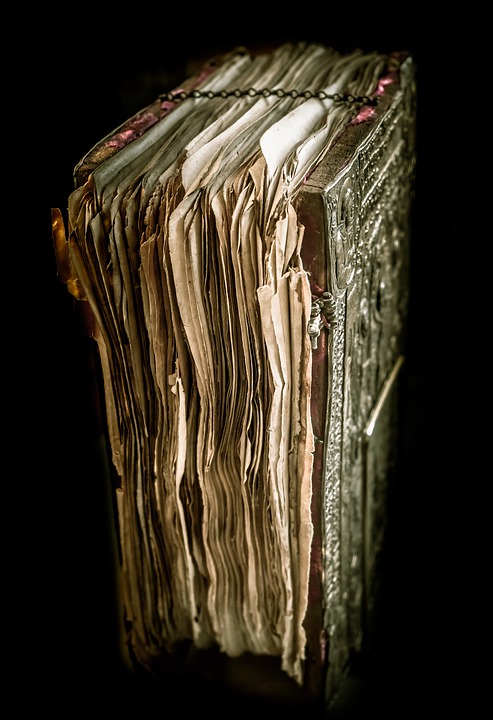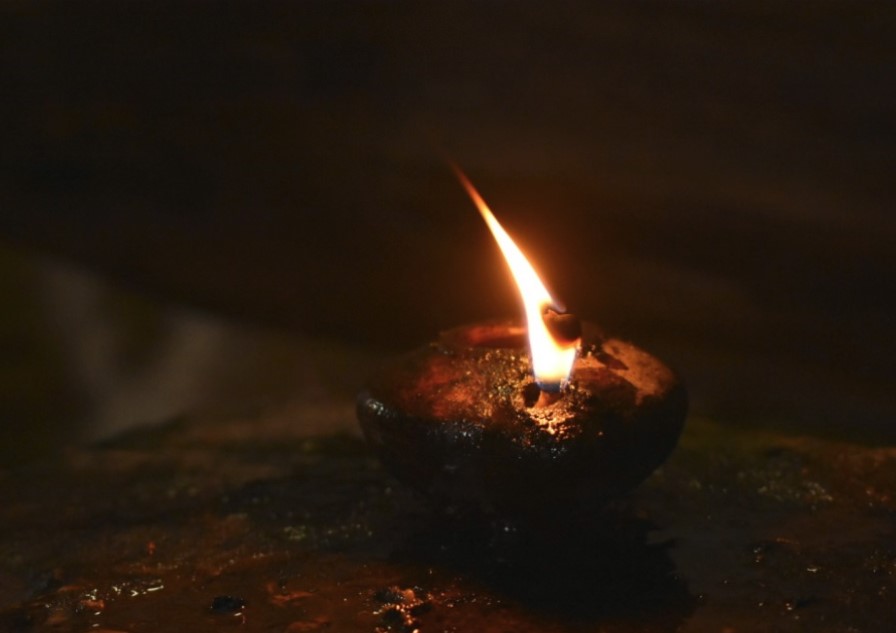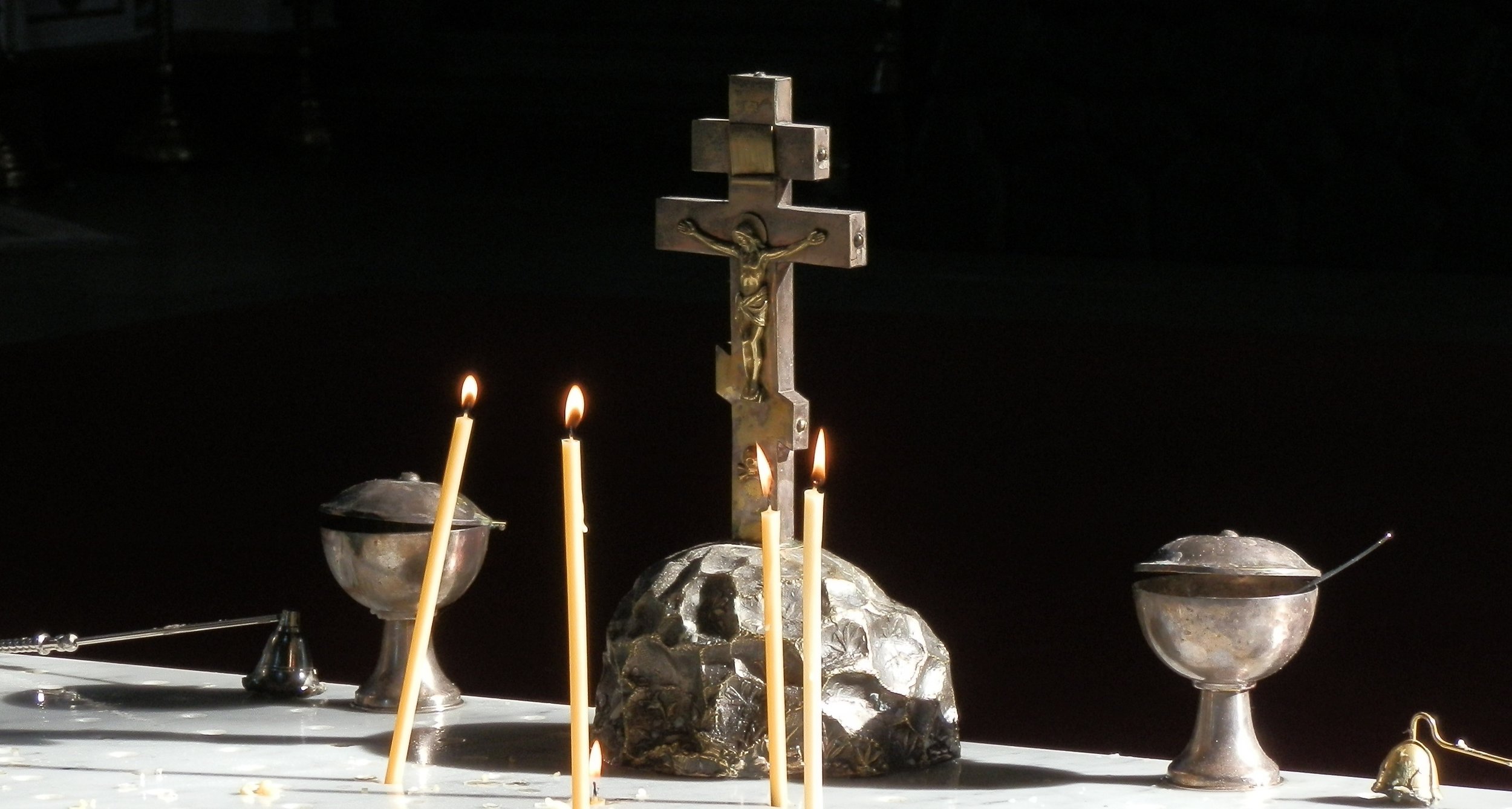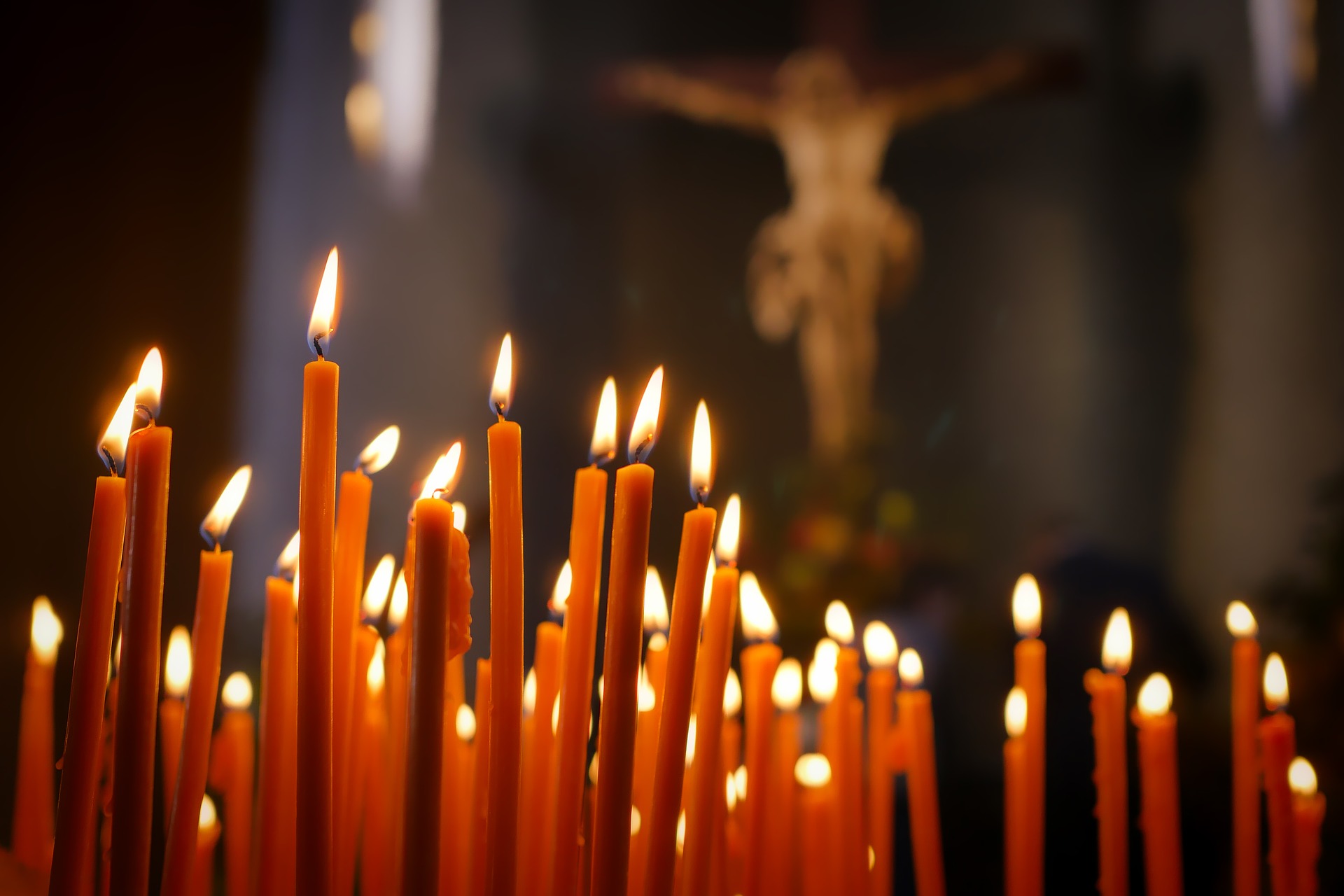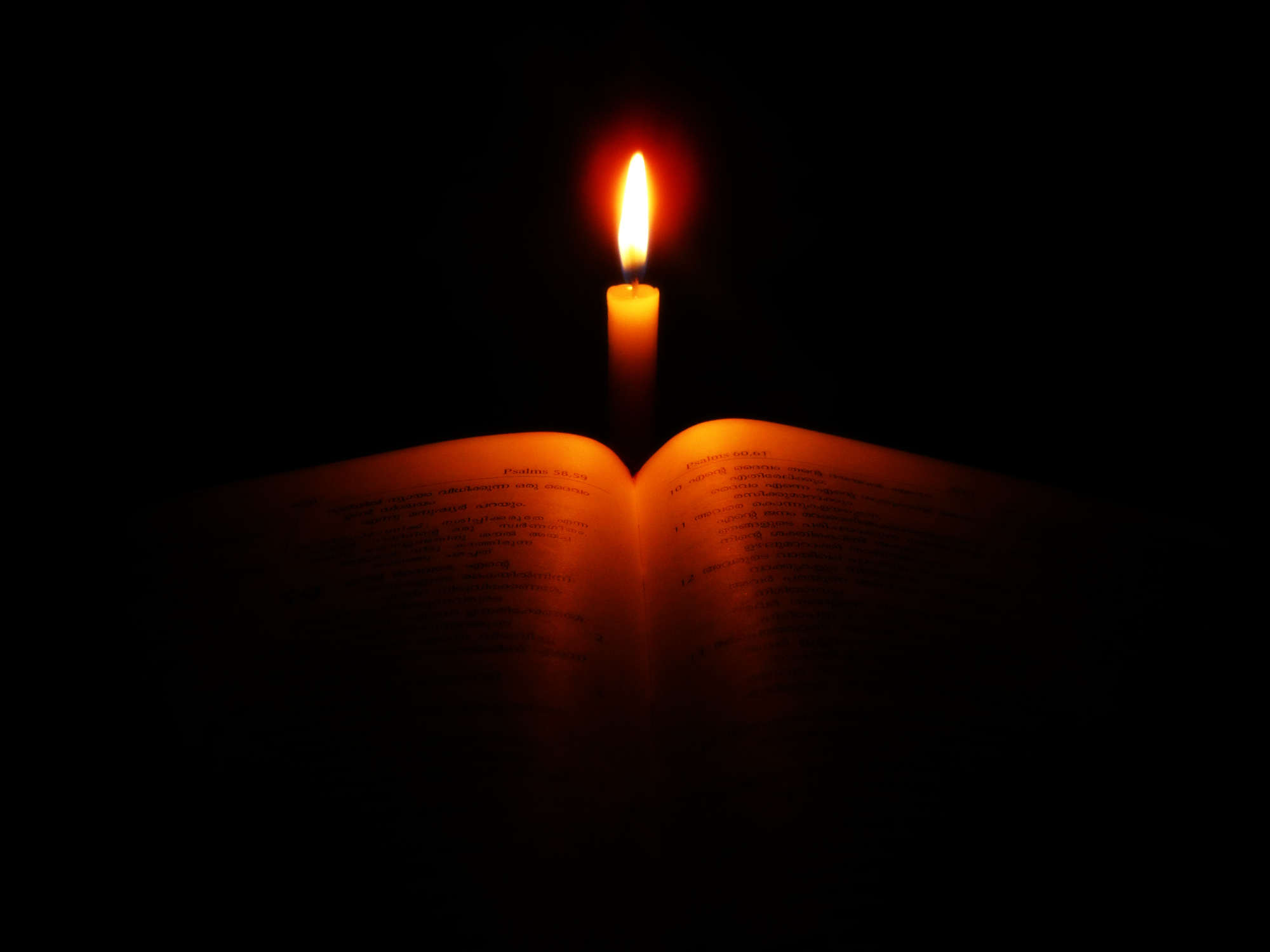Christian Restorative Justice
In the Orthodox Tradition
Photo credit: cuetor59, Pixabay.
Introduction
These resources explore Christian reflections from the Eastern Orthodox and Oriental Orthodox traditions, from 800 AD onward, on God’s creation order and its meaning as God’s vision for relationships between human beings, and also between human beings and the created world.
Resources on Christian Restorative Justice and God’s Creation Order in the Orthodox Traditions
Anaphora of St. Athanasius, Liturgy of the Ethiopian Orthodox Tewahedo Church. Athanasius of Alexandria (298 - 373) was bishop of Alexandria, and appointed Frumentius to be the first abuna of the Ethiopian Church. This prayer over the eucharist was named for him, although authorship cannot be ascertained. Lines 168 - 169 read:
“As David said in the Psalms, Lord, who shall abide in Thy tabernacle? Who shall dwell on the hill of Thy sanctuary? Then the Holy Spirit answered and said . . . He that puts not out his money to usury, nor takes a bribe against the innocent . . .” [Psalm 15]
Public Orthodoxy: Bridging the Ecclesial, the Academic, and the Political (website) excellent articles from the Orthodox Christian Studies Center of Fordham University, part of a special project of the Orthodox Theological Society of America (website) and the International Orthodox Theological Association (website)
Orthodox History (website), International Orthodox Christian Charities (website), and Orthodox Christian Mission Center (website)
Wikipedia, Empress Theodora, Wife of Justinian I example of women's rights and religious tolerance from 500's; see also Stella Duffy's The Purple Shroud, a work of historical fiction
Timothy S. Miller, The Birth of the Hospital in the Byzantine Empire. Johns Hopkins University Press | Amazon page, Jun 17, 1997. A masterpieceshowing one of the most positive interactions between church and government. It is impressive how much data we have. This also makes a good case that our science, medicine, and health system should be publicly supported in some form. See also The Cosmological Vision of St. Basil and the First Hospital. Servant of Prayer blog, Apr 8, 2014. See also Father Johannes Jacobse, St. Basil the Great and Christian Philanthropy. American Orthodox Institute USA, Dec 20, 2014. See also Thomas Heyne, Reconstructing the World's First Hospital: The Basiliad. Hektoen International: A Journal of Medical Humanities, Spring 2015.
Bases for the Social Concept of the Russian Orthodox Church. Moscow Patriarchate, 2000.
Pui-Lan Kwok, Don H. Compier, and Joerg Rieger, Empire and the Christian Tradition: New Readings of Classical Theologians. Fortress Press | Amazon page, 2007. A vital counterpart to biblical exegesis: major theologians from the early church to the present; rereading them is important.
Robert Spencer, Slavery, Christianity, and Islam. First Things, Feb 4, 2008.
John Couretas, Orthodox Christianity and Globalization. Orthodoxy Today blog, Spring 2008.
Father Ernesto, On Healthcare and the Church. OrthoCuban blog, Aug 9, 2009.
David Bentley Hart, Atheist Delusions: The Christian Revolution and Its Fashionable Enemies. Yale University Press | Amazon page, 2010.
David Holden, Distributism: A Primer for Orthodox Christians. In Communion, Nov 24, 2010.
Emmanuel Clapsis, Peace, Economic Injustice, and the Orthodox Church. Greek Orthodox Diocese in America, May 18, 2011.
John A. McGuckin, The Ascent of Christian Law: Patristic and Byzantine Formulations of a New Civilization. St. Vladimir’s Seminary Press | Amazon page, Jan 2012.
Father Ernesto, Did the Church Fathers Address the Issue of Slavery? OrthoCuban, Jan 21, 2012.
A. Brining, Orthodox Christianity and Human Rights. Peeters Publishers | Amazon page, Jul 31, 2012.
David Bentley Hart, Is, Ought, and Nature's Laws. First Things, Mar 2013. A rejection of 'natural law' without revelation.
Timothy Patitsas, The Opposite of War is Not Peace. Road to Emmaus, Winter 2013. A helpful article from an Orthodox perspective critiquing Catholic-Protestant “just war” theory as pastorally incomplete, from the perspective especially of traumatized veterans
The Orthodox Church and State, Church, State, and Violence in Medieval Russia. The Orthodox Church and State blog, Mar 28, 2013.
David Bentley Hart, No Enduring City: The Gospel Both Created and Destroyed Christendom. First Things, Aug 2013. Hart points out a fundamental incompatibility between church and state
Kristina Stoeckl, The Russian Orthodox Church and Human Rights. Routledge | Amazon page, 2014. Stoeckl examines the 2008 Russian Orthodox statement on human dignity, freedom, and human rights. Also examines why the attitude of the Russian Orthodox Church has shifted from outright hostility to advocacy of “traditional values.”
Michael Bordeaux, Father Gleb Yakunin Obituary. The Guardian, Dec 30, 2014. An Eastern Orthodox example of human rights activism
John Chryssavgis, An Eastern Orthodox Perspective on Laudato Si. First Things, Jul 6, 2015.
Stanley S. Harakas, The Stand of the Orthodox Church on Controversial Issues. Greek Orthodox Diocese of America.
Scott Nevins, Eastern Orthodox Saints Who Committed Suicide. blog, Jan 24, 2016) notes how the early church accepted suicide to preserve sexual chastity/virginity; and how that view changed to forbid suicide
Ovidiu Hurduzeu, Distributist Economy For the Orthodox Countries. Katehon, Mar 16, 2016.
Katehon, The Economy in the Context of Globalization. Katehon, May 23, 2016.
Katehon, Russian Orthodox Church Against Liberal Globalization, Usury, Dollar Hegemony, and Neocolonialism. Katehon, May 26, 2016.
Kristina Stoeckl, Ingeborg Gabriel, and Aristotle Papanikolaou, Political Theologies in Orthodox Christianity: Common Challenges - Divergent Positions. T&T Clark | Amazon page, 2017. The authors examine multiple angles from various scholars wrestling with modernity; includes chapters on prophetic, ecclesial, civic, and symphonic positions.
Matthew Franklin Cooper, (In)vested Interests. Heavy Anglo Orthodox blog, Jul 10, 2017. Cooper is also a helpful resource on various policy issues like usury, just wages, unions.
Mohammed Girma and Cristian Romocea, Christian Citizenship in the Middle East: Divided Allegiance or Dual Belonging? Jessica Kingley Publishers | Amazon page, Jul 21, 2017. Helpful concrete case study reflections, as many Christians in the Middle East come from the Orthodox tradition.
Ashley M. Purpura, God, Hierarchy, and Power: Orthodox Theologies of Authority from Byzantium. Fordham University Press | Amazon page, 2018. Examines the theology of hierarchy - a technical term not identical with power structures - beginning with Dionysius the Areopagite.
Elisabeth-Alexandra Diamantopoulou and Louis-Leon Christians, Orthodox Christianity and Human Rights in Europe: A Dialogue Between Theological Paradigms and Socio-Legal Pragmatics. P.I.E-Peter Lang S.A., Éditions Scientifiques Internationales| Amazon page, Apr 30, 2018. Aims at examining in what terms, and to what extent, the "reception" of the Human Rights doctrine takes place in Eastern Orthodox countries, as well as in the Orthodox diaspora. Questions are raised about the resources and theological structures that are mobilized in the overall Human Rights’ debate and controversy, the theological "interpretation" of Human Rights within the Eastern Orthodox spiritual tradition, and the similarities and/or divergences of this "interpretation", compared to the other Christian confessions. Special attention is given to the various Orthodox actors on the international arena, aside from the national Orthodox churches, which participate in the Ecumenical dialogue, as well as the dialogue with European and international institutions.
Mario Baghos, Philosophies of Church and State in Christian Constantinople. International Network for Byzantine Philosophy, Jun 13, 2018. Views Mark of Ephesus as last of a long line who saw that Empire and Church were separable; Empire was not worth saving if it meant compromising Church.
David Bentley Hart, What Lies Beyond Capitalism? A Christian Exploration. Plough, Aug 12, 2019. Hart is notable for the way he centers people and labor: “This form of commerce largely destroyed the contractual power of free skilled labor, killed off the artisanal guilds, and introduced instead a mass wage system that reduced labor to a negotiable commodity. In this way, it created a market for the exploitation of cheap and desperate laborers…”
Greek Orthodox Archdiocese of America, For the Life of the World: Towards a Social Ethos of the Orthodox Church. Greek Orthodox Archdiocese Jan 2020. An outstanding and insightful statement.
David Bentley Hart, Three Cheers for Socialism: Christian Love and Political Practice. Commonweal Magazine, Feb 24, 2020. An Eastern Orthodox American philosopher, Hart draws widely, however, writing, ““Socialism” is far from a univocal term, and much further from a uniform philosophy. I, for instance, have a deep affection for the tradition of British Christian socialism, which was shaped by such figures as F. D. Maurice (1805–1872), John Ruskin (1819–1900), Charles Kingsley (1819–1875), Thomas Hughes (1822–1896), F. J. Furnivall (1825–1910), William Morris (1834–1896), and R. H. Tawney (1880–1962), though I have also been influenced by such non-British social thinkers as Sergei Bulgakov (1871–1944), Dorothy Day (1897–1980), and E. F. Schumacher (1911–1977). None of these espoused any kind of statist, technocratic, secular, authoritarian version of socialist economics, and none of them was what we today think of as “liberal.” And yet their “socialist” leanings were unmistakable.”
Father Stephen Freeman, The Sins of a Nation. Glory to God for All Things, Jun 4, 2020. Freeman critiques American individualism for diminishing the need for collective acts of responsibility. “In the 20th century, there have been some notable national crimes that have, in some way, been acknowledged. Japan renounced its military in response to the atrocities and errors of the Second World War. Germany paid reparations to Israel and enacted numerous laws renouncing and restricting the scourge of Nazism. Many war criminals were punished. The Russian government, with no outside political pressure, not only acknowledged many of the crimes of its Communist past, but also built memorials and rebuilt churches (often returning properties that had been taken away) in an effort of public repentance.”
George Demacopoulos and Aristotle Papanikolaou, Orthodox Christianity, Systemic Racism, and the Wrong Side of History. Orthodox Observer News, Jun 5, 2020. “Will our grandchildren have to apologize for us because we stood on the wrong side of history, or will we accept the spirit of the Black Lives Matter critique because it is morally and theologically convicting?”
Father John Chryssavgis, Resource Center On Racial Reconciliation. Greek Orthodox Archdiocese of America. Includes nine conversations, official statements, and other resources.
Hans-Peter Grosshans and Pantelis Kalaitzidis (editors), Politics, Society and Culture in Orthodox Theology in a Global Age. Ferdinand Schoningh Wilhelm Fink | Amazon, Nov 1, 2022.
The articles in the book show that today's Orthodox theology is constructively relating to modernity in politics, society and culture. In 20 articles very prominent Orthodox theologians and experts on Orthodox theology and Orthodox Christianity from academic fields like sociology of religion or political studies are discussing, in what sense politics, society and culture are considered in Orthodox Theology in a global horizon. Contributors are Alfons Bruning, Ina Merdjanova, Nathaniel Wood, Cyril Hovorun, Dimitrios Moschos, Lucien Turcescu, K. M. George (Kondortha), Pantelis Kalaitzidis, Branko Sekulic, Georgios Vlantis, Nikolaos Asproulis, Atanas Slavov, Sveto Riboloff, Haralambos Ventis, Ioannis Kaminis, Irena Pavlovic, Athanasios N. Papathanasiou, Chris Durante, Katerina Kocandrle Bauer, Vasilios N. Makrides.
Nikolai Berdyaev, Maria Skobtsova, Where Your Treasure Is. Plough, Jul 20, 2023. Includes readings from Basil of Caesarea, C.S. Lewis, and Dorothy Day.
Pantelis Kalaitzidis, Orthodox Political Theology Between Neo-imperial Illusions and Modern Challenges. University of Tartu School of Theology and Religious Studies, Jan 9, 2024.
Orthodox political theology is usually associated with empires and with the Byzantine idea of "Symphonia". The latter is supposed to be represented in our post-modern, post-secular world by the Russian regime of Vladimir Putin and other authoritarian leaders, who claim to continue the genuine Orthodox tradition.
However, the Orthodox world is also part of our globalized societies and aspires to democratic freedoms, peace, and justice. Faced with the challenges of the modern and post-modern world, the Orthodox do not need a new emperor to solve all their problems.
They need more truth, justice, freedom, responsibility, and a public witness faithful to the Gospel. The question is, how to translate their robust theological and ecclesial resources, and especially Trinitarian theology, Christology, and Eucharistic ecclesiology, in a political praxis in the service of the whole community, and especially the needed, the oppressed, and the victims of history.
Sources of Christian Restorative Justice:
This section explores theological reflection on God’s justice as restorative: in Scripture; the Early Church up to John of Damascus; the Orthodox tradition, both Eastern and Oriental; the Roman Catholic tradition; and the Protestant tradition. See our Restorative Justice Tutorial, or go back to the main page of Sources, or the main page of Politics for how to apply this vision.

